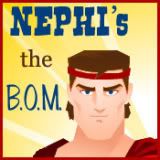

Trust
From Music and the Spoken Word
Delivered by: Lloyd D. Newell . Program 4141
Society today is plagued by some deceptive practices of politicians, business leaders, the media, educators, and even law enforcement. Social schemes, shams, and fraud are rampant. We find ourselves wondering, "Whom can we trust?"
But maybe an even better question is "Are we worthy of the trust of others?"
Recently an executive of an international company shared an experience he had in Uganda. He and some of his associates were helping construct a facility for needy children. The team was short on handsaws, so he and a friend dashed to a nearby hardware store to purchase more tools. Tese men were foreigners—mazungu is the word Ugandans use—and since foreigners are unfamiliar with local prices, overcharging a mazungu was common practice.
The store owner, a woman in her early 50s, approached the men in broken English and said, "I see with my eyes a mazungu, but in my heart, that's not what I see." She saw men who needed some tools, and she sold them at a fair price.1
The experience in the aisle of a hardware store had a lot to do with trust, not just buying saws. It illustrates how we can reverse the lack of trust around us. Like the Ugandan store owner, we can have the moral courage to do what's right no matter what is convenient or accepted. We can be scrupulously honest and fair so that our word means something. We can resolve to do our duty so that others can count on us. We can be polite and decent. And we can be patients, because deveoping or restoring trust takes time and often foregiveness.
Laws do not build truat; people do. And as the Ugandan shopkeeper taught us, people who build trust also beuild relationshiops of comapssion and kindness.
1 See Kerri Susan Smith, "The Fruits of Integrity: Trust, Influence, Repeat Business."
5 hours ago









No comments:
Post a Comment